tinnitus is a symptom that can take many forms. The possible causes of ringing in the ears and therapeutic approaches for improvement or healing are just as diverse and often complex.
What is ringing in the ears?

In medicine, various noises in the ear or head are described as ringing in the ears, which usually only the person affected can hear. The ringing in the ears is not based on any external triggers that generate noises. A ringing in the ears can usually not be heard by outsiders.
A distinction is occasionally made between the so-called objective and subjective ringing in the ears: If there is an objective ringing in the ears, this can also be perceived, for example, by the ear doctor using a stethoscope.
In medical diagnostics, ringing in the ears is also assigned to the umbrella term tinnitus; but only if the ringing in the ears or ringing in the ears lasts a longer period of time. Most healthy people have also experienced ringing in their ears or ringing in their ears for brief moments. However, these usually disappear again after a short time.
causes
Various causes are discussed by experts that can lead to ringing in the ears. The most important reason given is that an increasing number of noises affect people in everyday life. An example of the causes of a temporary ringing in the ears could be attending an event with very loud music:
A ringing in the ears is often felt some time after the event, although there is no longer any real acoustic stimulus. Other possible causes of ringing in the ears are emotional stress, fears or the feeling of being overwhelmed.
The so-called objective ringing in the ears (the ringing in the ears that can be made audible by medical devices) is mostly based on organic damage or illnesses. For example, hearing loss and noise damage (which often do not completely heal again), but also diseases of the jaw or the cervical spine.
Diseases with this symptom
- Tinnitus
- Acoustic neuroma
- Otitis media
- arteriosclerosis
- Sudden hearing loss
- Circulatory disorders
- Otosclerosis
- Whiplash
- Acoustic trauma
- Hearing loss
- Eardrum injuries
- Meniere's disease
Diagnosis & course
The course of ringing in the ears can vary greatly depending on the underlying cause.
For example, ringing in the ears can start suddenly or develop slowly. In addition, it depends, among other things, on the cause of whether the ringing in the ears worsens, improves or even disappears again.
The methods of diagnosing ringing in the ears also differ depending on the type of ringing in the ears: If the ringing in the ear is based on organic causes, the ringing in the ear and its causes can be identified through medical examinations. If the affected person has a subjective ringing in their ears, a diagnosis is based on the patient's description of the symptoms.
Complications
Ringing in the ears can basically affect anyone who is exposed to excessive volume, pressure differences or stress. This is something completely normal, which can be traced back to the anatomy of the ear in the outer, middle and inner ear. Often the problem lies in the inner ear, where the snail is located. The snail and its liquid concentration get mixed up temporarily.
Sometimes the ringing in the ears is only really noticeable when the surroundings are quiet or the person is already in bed. The classic these days is going to a rock concert. If the music was excessively loud, or if the music fan was standing too close to the stage speakers, this can lead to excessive strain on the ears. The ringing in the ears is not a current sound that can be measured in decibels.
However, in many cases it is a response to loud noises that the individual has been exposed to for a while. But pressure fluctuations, such as when diving or flying, can also trigger noise in the ears. These overloads are not yet a disease. If the decibel load or pressure is too high, however, the ear, especially the eardrum or snail, can be damaged.
This is also the case as a result of loud explosions. If ringing in the ears becomes chronic, we can speak of tinnitus. In tinnitus there is either damage to the middle and inner ear, or an impairment of the brain, for example through permanent stress or organic damage.
When should you see a doctor?
A ringing in the ears does not necessarily have to be examined by a doctor. As a rule, the ringing in the ears occurs after excessive strain on the ears. This includes listening to loud music or general loud noises that can arise, for example, when operating various machines. In these cases, the ringing in the ears often disappears on its own after a short time, so that no treatment by the doctor is necessary. However, during this time, the affected person should not continue to strain their ears unnecessarily in order to avoid a permanent symptom.
A doctor must be consulted if the ringing in the ears does not go away by itself even after a few days or if the noises in the ear are associated with pain. This can be serious damage to the ear or inflammation in the ear that requires medical attention. As a rule, these diseases have a positive course of disease. The ringing in the ears must also be examined by a doctor if it occurs suddenly and without excessive stress. In this case, the ringing in the ears may be a symptom of another disease.
Doctors & therapists in your area
Treatment & Therapy
A successful treatment of ringing in the ears is also based initially on the diagnosed causes: If the ringing in the ears is organic, the appropriate therapy consists primarily of curing or treating the underlying complaints. If these basic complaints can be cured or alleviated, the ringing in the ears caused in this way will usually also subside.
The treatment of subjective ringing in the ears usually turns out to be quite tedious. Various therapies are based on the fact that those affected learn methods to be less influenced by the ringing in the ears: It can be helpful, for example, to drown out the ringing in the ears with soft noises through headphones. The brain is thus distracted from the perceived ringing in the ears and, according to experts, sooner or later learn to block out the ringing in the ears.
Various relaxation methods can also help to distance yourself from the ringing in the ears. If the ringing in the ears is due, among other things, to internal tension, relaxation methods can also cause the ringing in the ears to subside over time. Possible relaxation methods are, for example, so-called progressive muscle relaxation, in which conscious relaxation is learned, or autogenic training.
If the ringing in the ears causes a person affected to suffer a great deal, psychotherapeutic measures can also help to cope better with the ringing in the ears.
prevention
Since the causes of ringing in the ears are very diverse, concrete prevention is not easy. An organic ringing in the ears can be prevented by carefully observing pain in the head and ears and, if necessary, consulting a doctor early on. To prevent hearing damage as a cause of ringing in the ears, it is advisable, for example, to avoid loud noise or to use hearing protection.
You can do that yourself
A number of home remedies and measures can help with ringing in the ears, depending on the cause. Ringing in the ears as a result of tinnitus can be treated by natural remedies such as zinc, ginkgo biloba, or turmeric. If mucus has also formed in the sinuses, a saline solution will help flush them out and thus relieve the tinnitus. If high blood pressure is the cause, fatty foods should be avoided as well as alcohol and coffee.
Depending on the strength of the noises in the ears, it can already help to clean the ears or have them professionally rinsed out by the doctor. If the ringing in the ears is due to physical complaints such as teeth grinding or a misaligned jaw, relaxation measures and sport can help. The pressure point massage, in which the index and middle fingers are placed in front of or behind the ears, promotes blood circulation in the ears and thus alleviates noise in the ears.
In addition, the noise level should be reduced in everyday life. Headphones or earplugs give the ear canals the opportunity to relax and thus reduce the ringing noise in the long term. Those affected should also drink relaxation teas with hops, lemon balm or valerian and avoid stress as much as possible. Alcohol and nicotine consumption should be reduced until the symptoms subside.

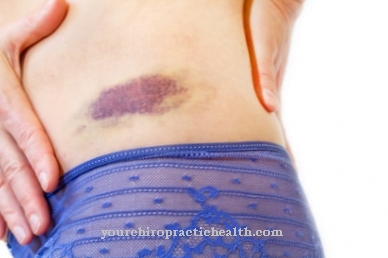
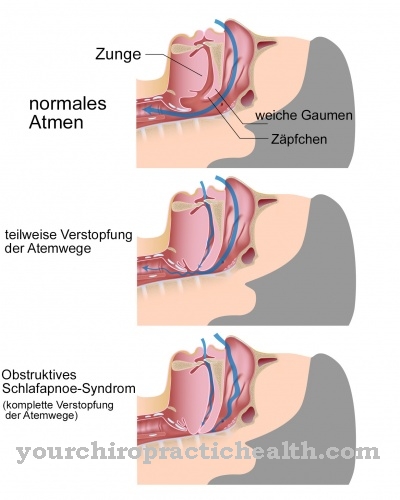
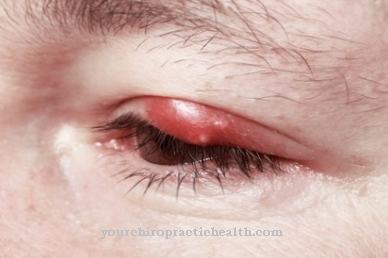

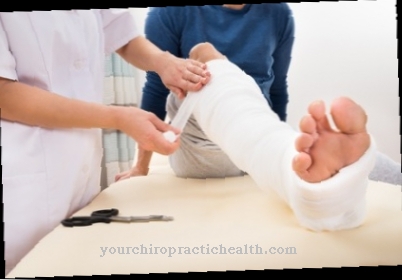
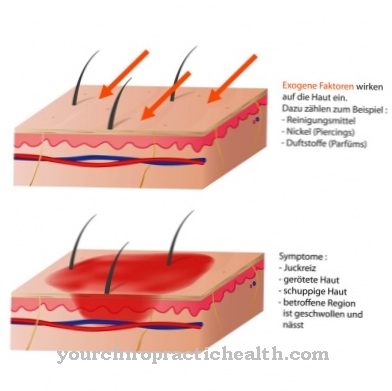

















.jpg)



